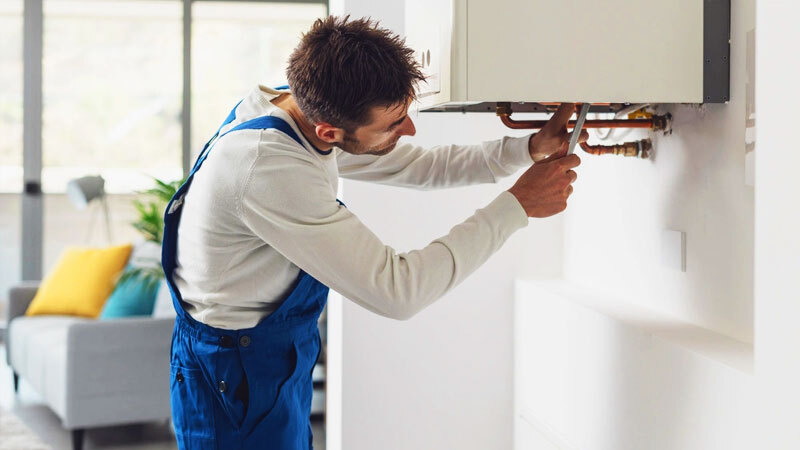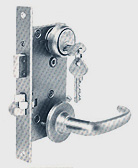A sudden loss of hot water can be a household nightmare, turning the simplest tasks like taking a shower or washing dishes into challenges. When faced with an emergency water heater repair situation, you need a quick and effective solution. In this guide, we’ll explore the world of emergency water heater repair, helping you understand the common issues, their causes, and how to address them effectively.
The Importance of Hot Water
Before diving into the specifics of emergency water heater repair, let’s first acknowledge the critical role hot water plays in our daily lives. Hot water is a versatile necessity, serving purposes ranging from personal hygiene to cleaning, cooking, and sanitizing. Here are some of the key ways we rely on hot water:
- Bathing: A warm shower or bath is a daily comfort we often take for granted.
- Cleaning: Hot water can help dissolve grease and stains, making cleaning more efficient.
- Cooking: Boiling water is a foundational step in countless recipes.
- Laundry: Hot water is often needed for effective stain removal and sterilization.
Given these essential uses, the sudden absence of hot water can disrupt our routines and create inconvenience. That’s why it’s crucial to understand common water heater issues and how to respond when they arise.
Identifying Water Heater Emergencies
1. No Hot Water
One of the most prevalent water heater emergencies is the complete lack of hot water. Several factors can lead to this issue, including:
- Malfunctioning Heating Element: A faulty heating element may fail to heat the water adequately.
- Broken Thermostat: The thermostat regulates the water temperature, and when it’s not working correctly, you may get no hot water.
- Tripped Circuit Breaker: If the circuit breaker controlling your water heater has tripped, it can result in no power to the unit.
2. Insufficient Hot Water
In some cases, you may have hot water, but it runs out quickly, leaving you with cold water when you need it most. Common causes of insufficient hot water include:
- Sediment Buildup: Over time, sediment can accumulate at the bottom of the water heater tank, reducing its heating efficiency.
- Undersized Water Heater: If your water heater is too small for your household’s hot water demands, you may experience insufficient hot water.
3. Leaking Water Heater
A leaking water heater is a more severe issue that requires immediate attention. Leaks can lead to property damage and pose safety risks. Common causes of water heater leaks include:
- Internal Corrosion: Over time, the inside of the tank can corrode, leading to leaks.
- Loose or Faulty Valve: Loose or damaged valves can result in water leaks from your water heater.
4. Strange Noises
Unusual sounds coming from your water heater can be alarming. They can be indicative of issues such as:
- Sediment Buildup: When sediment accumulates at the bottom of the tank, it can cause rumbling or popping noises during heating.
- Faulty Heating Element: A malfunctioning heating element may produce unusual sounds.
- Loose Components: Loose or vibrating components within the water heater can create rattling or clanking noises.
5. Smelly or Discolored Water
If your hot water has an unpleasant odor or is discolored, it can be concerning and may indicate:
- Bacterial Growth: Bacteria in the water heater tank can produce foul odors and discoloration.
- Rust in the Tank: Corrosion inside the tank can lead to rust-colored water.
6. Pilot Light Issues
For gas water heaters, a malfunctioning pilot light can result in no hot water. Pilot light issues may include:
- Pilot Light Extinction: The pilot light may go out, resulting in a lack of hot water.
- Dirty Thermocouple: A dirty thermocouple can prevent the pilot light from staying lit.
Emergency Water Heater Repair: Quick Solutions
Now that we’ve identified the common water heater issues, let’s explore practical solutions for emergency water heater repair.
1. No Hot Water
- Check the Circuit Breaker: Ensure that the circuit breaker is not tripped. If it is, reset it to restore power to the water heater.
- Inspect the Thermostat: Test the thermostat’s settings and adjust them if necessary. A faulty thermostat can lead to insufficient heating.
- Replace the Heating Element: If the thermostat is working correctly, the issue might be a damaged heating element. Replacing it should resolve the problem.
2. Insufficient Hot Water
- Flush the Tank: To remove sediment buildup, drain and flush the tank, improving heating efficiency.
- Upgrade to a Larger Tank: If your water heater consistently runs out of hot water, consider upgrading to a larger unit to meet your household’s demands.
3. Leaking Water Heater
- Turn Off the Water Supply: The first step is to cut off the water supply to prevent further leakage. Then, consult a professional plumber to assess the damage and make necessary repairs.
- Address Valve Issues: Sometimes, a leaking water heater can be fixed by tightening or replacing a faulty valve.
4. Strange Noises
- Flush the Tank: Sediment buildup is a common cause of strange noises. Follow the steps to flush the tank and eliminate the debris causing the sounds.
- Tighten Loose Parts: Inspect your water heater for loose components and tighten them to eliminate rattling or clanking noises.
5. Smelly or Discolored Water
- Flush and Disinfect the Tank: Flushing and disinfecting your water heater can eliminate the bacteria causing unpleasant odors and discoloration.
- Check for Corrosion: Inspect your tank for signs of corrosion and contact a professional if needed for further inspection and repairs.
6. Pilot Light Issues
- Relight the Pilot Light: Follow the manufacturer’s instructions to safely relight the pilot light if it goes out.
- Clean the Thermocouple: A dirty thermocouple can lead to pilot light issues. Cleaning it can resolve the problem.
Conclusion
When faced with emergency water heater repair situations, it’s crucial to remain calm and act promptly. Understanding the common issues and their solutions empowers you to navigate these scenarios with confidence. Remember that regular maintenance and swift attention to problems can prevent future emergencies and extend the lifespan of your water heater.
FAQs (Frequently Asked Questions)
-
Can I repair a leaking water heater myself? It’s advisable to turn off the water supply and consult a professional plumber for leaking water heater issues, as they can be complex and potentially lead to further damage.
-
How often should I flush my water heater tank? Flushing your water heater tank once a year can help prevent sediment buildup and extend the unit’s lifespan.
-
What’s the best way to prevent water heater emergencies? Regular maintenance and inspections, along with promptly addressing any issues, are the most effective ways to prevent water heater emergencies.
-
How can I tell if my water heater’s thermostat is faulty? If your water heater is not producing hot water, the thermostat may be at fault. Test the settings and consider replacing it if necessary.





